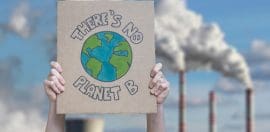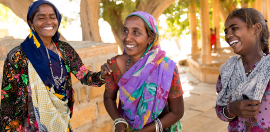Can civil society help Australia meet its SDGs?

The 17 Sustainable Development Goals.
13 November 2019 at 5:14 pm
Australia is not on track to meet its Sustainable Development Goal targets by 2030
Charities can play a role in meeting Australia’s Sustainable Development Goal commitments, which will not be met by 2030 on the country’s current trajectory according to new research.
A University of New South Wales (UNSW) report said if Australia continues business-as-usual it will only achieve 40 per cent progress on SDG targets by 2030 and will miss out on the benefits of becoming a “fairer, greener, more prosperous nation”.
All United Nations countries adopted the SDGs in 2015 as the central pillar of a global action plan for people, the planet and prosperity by 2030.
The 17 goals cover major aspects of economic prosperity, social justice, and environmental sustainability, from decent jobs and quality education to good health, clean energy and water, and managing the effects of climate change.
The report’s lead author, Cameron Allen, said the government’s fixation on a “growth at all costs” mentality has been the main discourse in Australia, with little appetite to fulfill the SDGs.
But he said growing interest in the SDGs from business and civil society groups could charge the government into action.
Allen told Pro Bono News the best way civil society could go about this was to spark momentum by highlighting the importance of the UN targets in a way that everyone understood.
“Civil society really has a role in being that conduit between a global agenda that Australia has signed up to which no one knows about and linking that to people’s lives and how they can actually benefit people,” Allen said.
“By doing that, we can get these issues, whether it be social issues or environmental issues onto the political agenda.”
Simon Henderson, Save the Children’s head of policy, told Pro Bono News there was a widespread perception that the SDGs were only about foreign aid and that the conversation needed to broaden.
“The SDGs actually consider issues around nutrition, health, justice, education, gender equality, and climate change, and all those issues are particularly relevant in the current conversations we’re having in Australia,” Henderson said.
“So there does need to be a more concerted effort from the sector to ensure that there is greater awareness of all the SDGs.”
Allen said it was important for civil society and business to lead the way by setting their own targets according to the SDGs.
“If you’re working in poverty or income inequality, you should be trying to formulate national targets and get those targets adopted by the government,” he said.
“It’s only when those targets are in place that things will actually accelerate by placing the pressure on government through evidence-based science-based targets.”
He said it was vital real action on the SDGs was taken as soon as possible to not only help Australia but fulfill international obligations as well.
“Having agreed to them in 2015, there is an expectation and obligation on Australia to take them seriously and undertake progress reports,” he said.
The full research can be found here.







